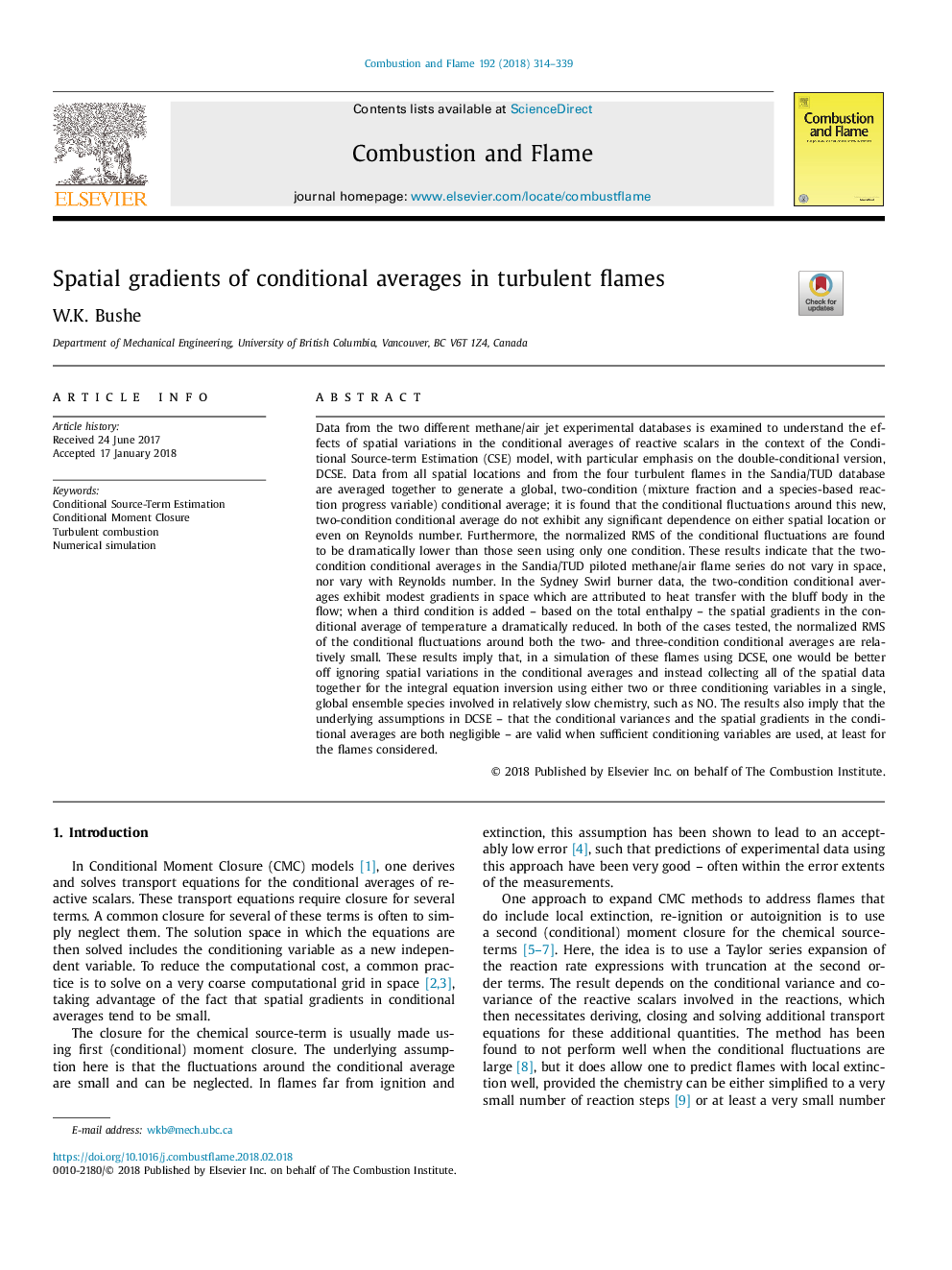| کد مقاله | کد نشریه | سال انتشار | مقاله انگلیسی | نسخه تمام متن |
|---|---|---|---|---|
| 6593683 | 1423545 | 2018 | 26 صفحه PDF | دانلود رایگان |
عنوان انگلیسی مقاله ISI
Spatial gradients of conditional averages in turbulent flames
ترجمه فارسی عنوان
شیب های فضایی میانگین های شرطی در شعله های آشفته
دانلود مقاله + سفارش ترجمه
دانلود مقاله ISI انگلیسی
رایگان برای ایرانیان
کلمات کلیدی
ارزیابی اولیه شرطی قراردادی، بسته شدن لحظه ای معین، احتراق متضاد، شبیه سازی عددی،
موضوعات مرتبط
مهندسی و علوم پایه
مهندسی شیمی
مهندسی شیمی (عمومی)
چکیده انگلیسی
Data from the two different methane/air jet experimental databases is examined to understand the effects of spatial variations in the conditional averages of reactive scalars in the context of the Conditional Source-term Estimation (CSE) model, with particular emphasis on the double-conditional version, DCSE. Data from all spatial locations and from the four turbulent flames in the Sandia/TUD database are averaged together to generate a global, two-condition (mixture fraction and a species-based reaction progress variable) conditional average; it is found that the conditional fluctuations around this new, two-condition conditional average do not exhibit any significant dependence on either spatial location or even on Reynolds number. Furthermore, the normalized RMS of the conditional fluctuations are found to be dramatically lower than those seen using only one condition. These results indicate that the two-condition conditional averages in the Sandia/TUD piloted methane/air flame series do not vary in space, nor vary with Reynolds number. In the Sydney Swirl burner data, the two-condition conditional averages exhibit modest gradients in space which are attributed to heat transfer with the bluff body in the flow; when a third condition is added - based on the total enthalpy - the spatial gradients in the conditional average of temperature a dramatically reduced. In both of the cases tested, the normalized RMS of the conditional fluctuations around both the two- and three-condition conditional averages are relatively small. These results imply that, in a simulation of these flames using DCSE, one would be better off ignoring spatial variations in the conditional averages and instead collecting all of the spatial data together for the integral equation inversion using either two or three conditioning variables in a single, global ensemble species involved in relatively slow chemistry, such as NO. The results also imply that the underlying assumptions in DCSE - that the conditional variances and the spatial gradients in the conditional averages are both negligible - are valid when sufficient conditioning variables are used, at least for the flames considered.
ناشر
Database: Elsevier - ScienceDirect (ساینس دایرکت)
Journal: Combustion and Flame - Volume 192, June 2018, Pages 314-339
Journal: Combustion and Flame - Volume 192, June 2018, Pages 314-339
نویسندگان
W.K. Bushe,
